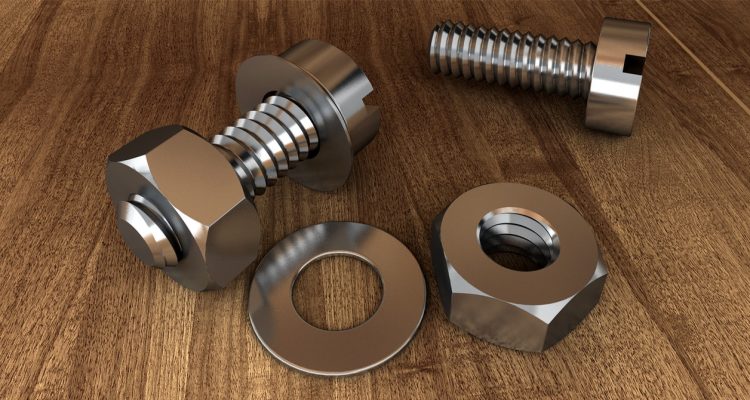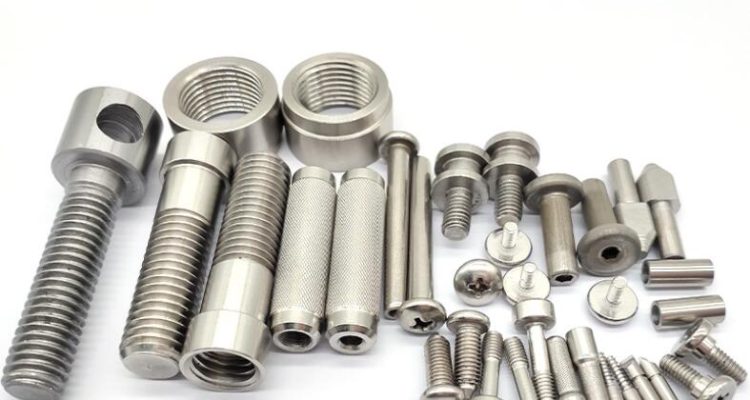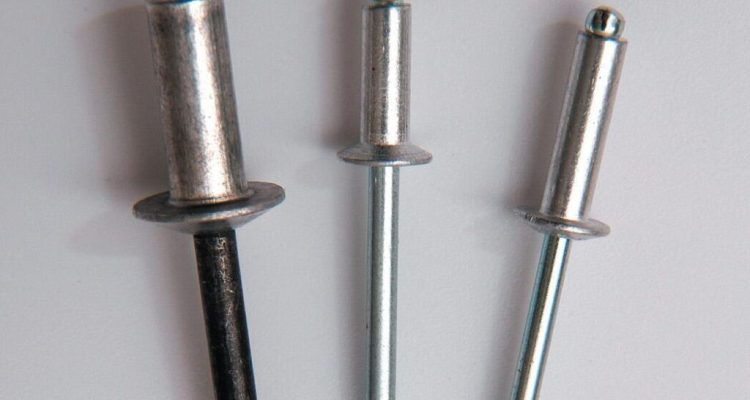
What is grade 5 bolt material
The material for Grade 5 bolts is primarily medium carbon steel, containing 0.28-0.55% carbon. These bolts undergo quenching and tempering to achieve a tensile strength of approximately 120,000 psi, making them suitable for high-load applications in automotive and aerospace industries.
Composition of Grade 5 Bolts
The vast majority of Grade 5 bolts are manufactured from medium carbon steel which has been quenched and tempered. This material is usually 0.28-0.55 percent carbon, plus other elements like manganese, phosphorus, and sulfur. They play a big role in the strength and toughness of the bolt. Medium carbon steel is used on Grade 5 bolts as this offers strong tensile strength over a broad range.
Grade 5 bolts are commonly associated with applications such as automotive and machinery. Highly resistant to high load conditions, these materials often reach a tensile strength of around 120K psi. Grade 5 bolts have even more impressive strength properties than most standard type steel, so they are often used in industrial or demanding applications.
Grade 5 bolts are commonly used in the automotive industry for suspension system and engine component applications. A typical car engine could have more than 50 Grade 5 bolts. These bolts have to maintain their mechanical properties in the harshest of conditions. Given the high-stress nature of vehicle operation at speed, using top-quality bolts is absolutely paramount to safety and performance.
Now, compare that to a typical yield strength for Grade 5 bolts—about 92,000 psi (pounds per square inch)—meaning it can take such stress before permanently changing. In contrast, the yield strength of regular low carbon steel bolts is usually less than 60KSI, so Grade 5 provides a substantial difference when it comes to both strength and longevity.
As a well-known engineer in the old days, Henry Ford once said, “Reliability is what wins product successfulness and material selection provides this outcome.” These concerns for structural integrity and long-term operation of equipment on construction sites or within oversized machinery are where Grade 5 bolts come in.
Required to face extreme pressure and vibrations, Grade 5 bolts are crucial in aerospace aircraft structural components. A typical airplane employs thousands of Grade 5 bolts, and the quality of each bolt impacts flight safety. NASA has released a report stating that most aviation accidents involve bolt failure. Thus, the choice of high-quality products such as Grade 5 bolts is very important.
Grade 5 bolts undergo a very tight and careful manufacturing process. Each step, from selecting the material, processing, and completing the product, involves stringent control. The first step is processing medium carbon steel, followed by quenching and tempering. The bolts are then treated externally (such as galvanizing or nickel plating) to improve corrosion resistance and wear.

Grade 5 Bolt Material Properties
Grade 5 bolts have remarkable product features. The body is made of medium carbon steel, which gives the screw high strength and hardness properties. Commonly, these bolts have been heat treated to HRC 22-32 after quench and temper, making them ideal for high-load applications like fastening engine parts in the automotive industry (with 120,000 psi tensile strength).
These bolts are not only hard but also very strong. Their yield strength is approximately 92,000 psi, and they will not easily deform under harsh conditions. The aerospace industry also has many applications for Grade 5 bolts. A typical aircraft might have thousands of Grade 5 bolts on its frame, holding it together in high vibration, high-pressure environments. Grade 5 bolts have been known to last longer than the typical 30+ years for aircraft life.
In construction engineering, these bolts are common. A high-rise building might have hundreds of thousands of Grade 5 bolts, which must survive wind, rain, and heavy loads for its entire lifespan. Frank Lloyd Wright, a great architect, once said, “The stability of the structure is the integrity of the building.” And you might wonder about the price of this material. As of commodity price charts, Grade 5 bolts are around $3-4 per pound. They are cost-effective, and the price gets even better if you purchase these bolts in bulk.
The dimensions of Grade 5 bolts vary greatly. Typical diameters range from 1/4 inches to approximately an inch and a half, while lengths can be custom-made. This wide range of specifications helps Grade 5 bolts serve in many different intricate engineering projects. Many engineering projects require the flexibility, stronger tensile strength, non-corrosive, and long-lasting features for which Grade 5 bolts are known.
“Material choice dictates engineering success or failure.” — Legendary material scientist William D. Callaman. This is illustrated by the extensive use and high quality of Grade 5 bolts.
Grade 5 bolts can obtain high hardness and strength, along with excellent corrosion resistance. This hardware is typically galvanized or nickel-plated, providing extra toughness in damp or corrosive situations. For example, in marine engineering, Grade 5 bolts are used in ships and offshore platforms. For galvanized Grade 5 bolts, this means over 500 hours in salt spray tests.
Moreover, chemical plants use Grade 5 bolts to connect high-pressure pipelines and reactors. Their corrosion resistance is directly related to the safe operation of the entire system.
High-temperature performance is another strength of Grade 5 bolts. They are ideal for use in industrial applications where stability and strength are desired at high temperatures. These bolts are used to fasten high-temperature equipment and piping in refineries and steel plants. As long as their exposed temperatures are maintained at around 500 degrees Celsius, Grade 5 bolts can retain over 90% of their original strength. In extreme examples, such as certain aerospace applications, Grade 5 bolts must have surface treatments applied (like a Teflon coating or various other high-temperature/corrosion resistance coatings) to perform safely.
Toughness is another crucial property. Grade 5 bolts are widely used in large dynamic load applications, such as bridges and heavy machinery. Their toughness can effectively prevent bolt rupture due to fracture accidents.
The production of these bolts undergoes strict quality control to ensure their strength. Per American Society of Mechanical Engineers (ASME) regulations, Grade 5 bolts require a specific level of impact toughness, usually tested down to minus 20 degrees Celsius to ensure performance at extreme temperatures. The manufacturing process, including quenching and tempering and precision machining, significantly affects their properties.
What Are Grade 5 Hex Head Bolts Made Of?
Grade 5 bolts are generally made of medium carbon steel, known for its balance of strength and ductility. This percentage of carbon supports the heat treatment of bolts, making them high tensile and long-lasting. Galvanizing improves the bolts’ resistance to environmental corrosion, a key point of failure in rust-prone environments.
If you are embarking on a construction project, such as making an exterior wooden deck, the quality of the bolts can directly affect the final product. Grade 5 bolts can resist yielding at around 74,000 psi. It’s a safe number, making them sturdy and reliable.
For a brief comparison, Grade 2 bolts are made of low or medium carbon steel, typically tempering at about 60,000 psi. Grade 8 bolts, made of alloy steel, have a tensile strength of around 150,000 psi. Grade 5 bolts are a good compromise between strength and cost, used in manufacturing and construction to ensure better quality, security, and safety.
Companies like Ford and General Motors typically use Grade 5 bolts to assemble their vehicles’ parts, demonstrating the high quality of these materials.
Therefore, if you are going for bolting in a construction project, ensure this medium carbon steel with heat treatment along with possible galvanization is a strong and perfect solution. If asked why Grade 5 bolts, proudly recite the 0.28% to 0.55% carbon content and up to 120,000 psi tensile rating as well as their usefulness in mainstream industry applications.



